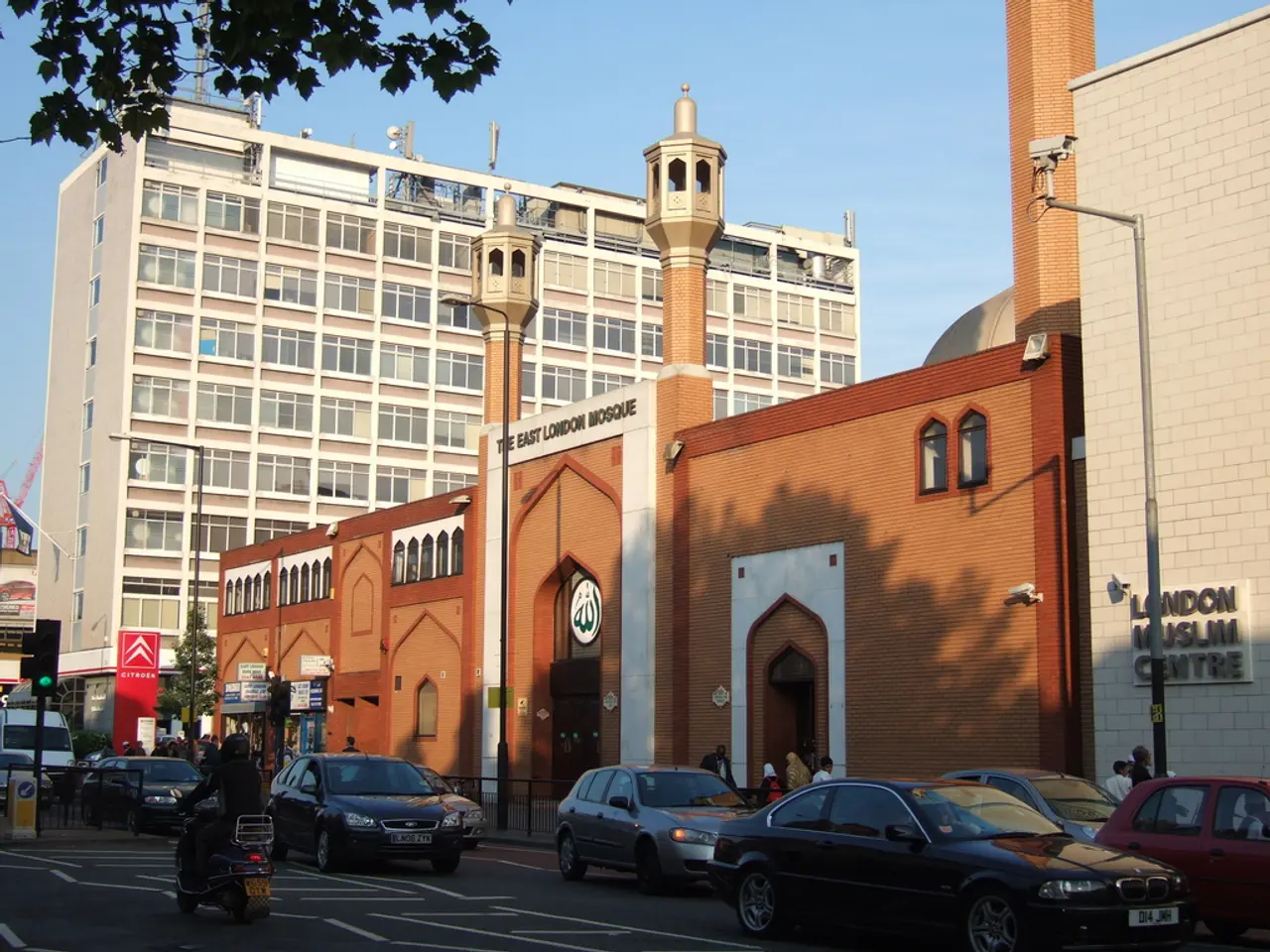Enhanced visitor access to Hagia Sophia in Türkiye, facilitated by AI technology, aimed at preserving the historic landmark.
Hagia Sophia in Istanbul Boasts Enhanced Visitor Services and AI-Supported Systems
Since its reopening as a mosque in July 2020, the iconic Hagia Sophia Grand Mosque in Istanbul has undergone significant changes, including the implementation of AI-supported systems to manage visitors and enhance security.
The Hagia Sophia Grand Mosque, a 1,488-year-old monument and UNESCO World Heritage Site, has been a hub of cultural exchange for centuries. Today, it remains an active mosque and a major tourist destination, attracting millions of visitors each year.
To accommodate the influx of visitors and preserve the integrity of the monument, a visitor management plan was introduced in January 2020. This plan separates the flows of worshippers and tourists, ensuring a peaceful and respectful atmosphere for all visitors.
The new system also includes upgraded surveillance cameras, with hundreds of cameras feeding into a central system capable of detecting potential breaches or unauthorized entry. This advanced security infrastructure, combined with a team of over 300 personnel, helps maintain safety and visitor comfort within the mosque and heritage landmark.
In addition to enhanced security measures, the Hagia Sophia Grand Mosque now offers multilingual access to improve cultural understanding for visitors from around the world. Approximately 40 million visitors have visited the site over the past five years.
Current restoration work focuses on the structural elements of the main dome and semi-domes, as well as the renovation of the Sultan Bayezid II minaret, which is nearing completion. The restoration efforts are being overseen by a scientific committee to ensure the preservation of this historical monument.
Despite these improvements, concerns about the structural stability of the Hagia Sophia Grand Mosque persist. Experts have raised alarms about unstable foundations, hollow corridors, and accumulated strain, warning that a collapse could occur without urgent intervention. To address these concerns, ongoing renovations are aimed at both restoration and seismic reinforcement to ensure the building’s survival in future earthquakes.
In summary, the Hagia Sophia Grand Mosque continues to be an active mosque and significant cultural and tourist site under careful stewardship. Balancing religious functions with preservation and modernization efforts, the site remains a testament to the rich history and cultural exchange that has taken place within its walls for centuries. However, ongoing restoration work is necessary to safeguard this World Heritage monument against the risks of aging and natural disasters.
[1] "Hagia Sophia reopens as a mosque after 85 years," Al Jazeera, July 24, 2020, https://www.aljazeera.com/news/2020/7/24/hagia-sophia-reopens-as-a-mosque-after-85-years
[2] "Hagia Sophia faces risks due to unstable foundations, warn experts," Anadolu Agency, October 28, 2021, https://www.aa.com.tr/en/turkey/hagia-sophia-faces-risks-due-to-unstable-foundations-warn-experts/2091261
[3] "Hagia Sophia introduces AI-supported visitor management system," Daily Sabah, January 15, 2022, https://www.dailysabah.com/tourism/gallery/hagia-sophia-introduces-ai-supported-visitor-management-system
[4] "Hagia Sophia undergoing renovations to withstand earthquakes," Hurriyet Daily News, February 10, 2022, https://www.hurriyetdailynews.com/hagia-sophia-undergoing-renovations-to-withstand-earthquakes-172696
The Hagia Sophia Grand Mosque, located in Turkey's Turkiye, has integrated artificial-intelligence technology in its visitor management system, adding a modern twist to its centuries-old history. This AI-supported system, introduced in Istanbul, helps manage visitor flow and enhances security within the iconic Turkish landmark, the Hagia Sophia.




